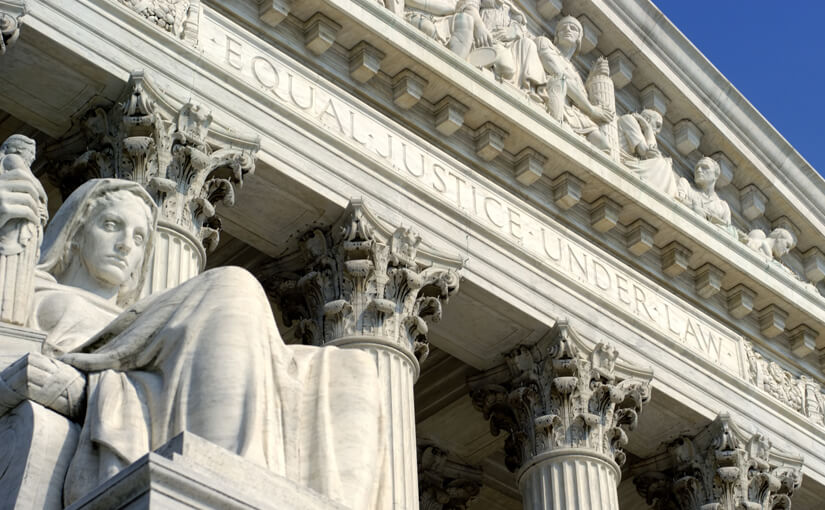- Reviews laws
- Explains laws
- Resolves disputes (disagreements)
- Decides if a law goes against the Constitution
The judicial branch is one of the three branches of government. The Constitution established the judicial branch of government with the creation of the Supreme Court. Congress created the other federal courts. All these courts together make up the judicial branch. The courts review and explain the laws, and they resolve disagreements about the meaning of the law. The U.S. Supreme Court makes sure that laws are consistent with the Constitution. If a law is not consistent with the Constitution, the Court can declare it unconstitutional. In this case, the Court rejects the law. The Supreme Court makes the final decision about all cases that have to do with federal laws and treaties. It also rules on other cases, such as disagreements between states.
** As you prepare for U.S. citizenship, Learn About the United States: Quick Civics Lessons will help you study for the civics and English portions of the naturalization interview. There are 100 civics (history and government) questions on the naturalization test. During your naturalization interview, you will be asked up to 10 questions from the list of 100 questions. You must answer correctly six (6) of the 10 questions to pass the civics test.


